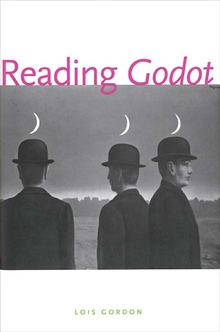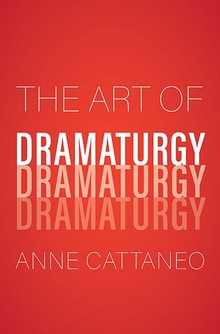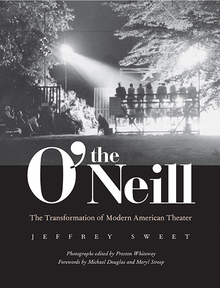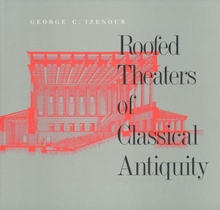Reading Godot
WARNING
You are viewing an older version of the Yalebooks website. Please visit out new website with more updated information and a better user experience: https://www.yalebooks.com
Lois Gordon
Waiting for Godot has been acclaimed as the greatest play of the twentieth century. It is also the most elusive: two lifelong friends sing, dance, laugh, weep, and question their fate on a road that descends from and goes nowhere. Throughout, they repeat their intention “Let’s go,” but this is inevitably followed by the direction “(They do not move.).” This is Beckett’s poetic construct of the human condition.
Lois Gordon, author of The World of Samuel Beckett, has written a fascinating and illuminating introduction to Beckett’s great work for general readers, students, and specialists. Critically sophisticated and historically informed, it approaches the play scene by scene, exploring the text linguistically, philosophically, critically, and biographically. Gordon argues that the play portrays more than the rational mind’s search for self and worldly definition. It also dramatizes Beckett’s insights into human nature, into the emotional life that frequently invades rationality and liberates, victimizes, or paralyzes the individual. Gordon shows that Beckett portrays humanity in conflict with mysterious forces both within and outside the self, that he is an artist of the psychic distress born of relativism.
Lois Gordon, author of The World of Samuel Beckett, has written a fascinating and illuminating introduction to Beckett’s great work for general readers, students, and specialists. Critically sophisticated and historically informed, it approaches the play scene by scene, exploring the text linguistically, philosophically, critically, and biographically. Gordon argues that the play portrays more than the rational mind’s search for self and worldly definition. It also dramatizes Beckett’s insights into human nature, into the emotional life that frequently invades rationality and liberates, victimizes, or paralyzes the individual. Gordon shows that Beckett portrays humanity in conflict with mysterious forces both within and outside the self, that he is an artist of the psychic distress born of relativism.
Lois Gordon, professor of English at Fairleigh Dickinson University, is also the author of The World of Samuel Beckett and the coauthor of American Chronicle, both published by Yale University Press.
"While you wait for Godot (and don’t hold your breath) you might have a glimpse of what you’re waiting for in Lois Gordon’s Reading Godot. There will never be ’a last word’ on the play but Gordon digs with such a Heaney-like trowel, poetic and passionate, you might hear cries and whispers you never heard before. When I see Waiting for Godot again I’ll want them to do it very slowly so that I can luxuriate in memories of Lois Gordon’s book."—Frank McCourt, author of Angela’s Ashes and ’Tis
“Lois Gordon’s new book is a valuable guide to the elasticity of Beckett’s best-known play—its relevance to major developments in nineteenth- and twentieth-century philosophy, psychology, painting, and drama; and its magic appeal to audiences of all ages and nationalities.”—Lawrence Graver, author of An Obsession with Anne Frank
“Lois Gordon’s stress on Beckett’s debts to Freud and the Surrealists and her detailed focus on Godot’s psychological and theatrical wonders are important and invigorating. A lucid, original and richly informative study that will be of value to scholars and practitioners alike.”—Xerxes Mehta, President, The Samuel Beckett Society; Artistic Director, The Maryland Stage Company
"Compelling insights. . . . Lois Gordon’s volume, with its articulate consideration of the psychological, emotional, and moral aspects of ’Waiting for Godot,’ is refreshing. . . . Gordon does Beckett a service by exploring and bringing out the human side of ’Godot.’"—Bill Marx, publicbroadcasting.net
"Gordon’s grounding in psychology, philosophy, and literature is apparent in this essay, which brings a decidedly ’modern’ (not ’postmodern’) analysis to the play that may well be the most emblematic dramatic work of the 20th century."—Choice
“Reading Godot . . . aims to put Beckett’s major dramatic work in historical, philosophical, biographical and literary context, and in so doing it may open up a whole new area of debate. Written in a highly literate style, this book is important reading for everyone interested in Beckett. . . . Gordon examines Godot in terms of artistic composition, dream states, visual impact, design and philosophical context. I believe Beckett would have admired her ability to do so without pretension. She, like Beckett himself, has come to wear her learning lightly and is able to rejuvenate our thinking about this, his most famous work.”—Karl Orend, Times Literary Supplement
ISBN: 9780300206418
Publication Date: November 5, 2013
Publication Date: November 5, 2013
224 pages, 5 1/2 x 8 1/4
3 b/w illus.
3 b/w illus.










